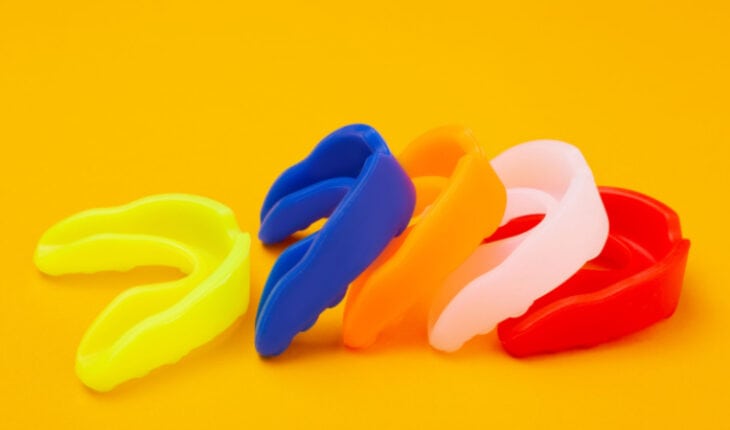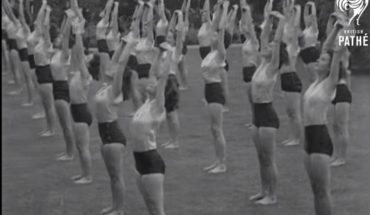More than 8.4 million or 16% of Brits have knocked out a tooth at some point due to injury, fall or other trauma, with sport injuries now accounting for half of these dental injuries.
According to new research from leading dental care provider Bupa Dental Care, four in 10 (43%) of these injuries could have been prevented by wearing a mouth guard.
But research shows just 36% of adults and 39% of children participating in such sports will wear one.
In the run up to the Rugby World Cup, Bupa Dental Care is encouraging anyone participating in contact sports such as rugby, hockey, and football to consider wearing a mouth guard to prevent tooth loss, facial damage, cracked teeth and tooth intrusion, as well as severe pain and potentially extensive treatment.
Anni Seaborne, a Bupa Dental Care and England national rugby dentist said: “Getting injured while playing sports is common, particularly if you’re engaging in high-contact sports like rugby, football or hockey.
“However, there are ways to protect against mouth injuries and I would recommend anyone taking part in contact sports to wear protection.
“I’ve seen far too many of these injuries and I know the pain and long-term damage that can be caused – it’s just not worth the risk. Players that don’t wear a mouthguard are at an increased risk of damaging their teeth during games.”
Not just contact sports…
The research also found that more than 3% of UK adults have lost a tooth during a run, playing tennis, golf, or other non-contact sports.
Sugary snacks risk tooth decay
The research also uncovered many adults and children are risking tooth damage with high use of sugary snacks to fuel them during exercise, with 17% of adults and 10% of young people having at least two energy drinks and energy bars per week. Bupa Dental Care’s, Anni Seaborne, added: “The sugars in sports drinks, bars and energy gels increases the risk of tooth decay, so it’s always worth keeping track of your intake and monitoring for any signs of potential decay.”
The five ways sports are ruining your teeth, according to Bupa’s Anni Seaborne:
1. NOT WEARING A MOUTH GUARD
Whether it’s a contact sport like rugby, football or hockey, or non-contact sport such as mountain biking or gymnastics – do wear protective mouth wear whenever there is a risk of injury. Boxing is the only professional sport for which mouthguards are mandated.
If you do lose a tooth, gently rinse the tooth clean if dirty and put it back into position and bite on a bit of cloth to hold the tooth in place. If that doesn’t work put the tooth in a glass of milk. At the same time, contact your dentist for an emergency dental care. Time is the most important factor when it comes to saving a tooth – so don’t delay.
2. RELYING ON ENERGY DRINKS, ENERGY BARS AND ENERGY GELS
High sugar drinks can cause tooth decay. If you’re having them often, there’s a real risk that it will lead to cavities in your teeth. Plus, when you exercise, your salivary flow will drop due to dehydration meaning that these sugars will sit on your teeth, which in turn will increase the decay rate. Instead of energy drinks, bars or gels with high sugar, try complex carbs before a workout so you’ll get a slow release of energy and reduce the risk of damaging your teeth.
3. NOT SEEING A DENTIST REGULARLY
During a busy training schedule, it can be harder for athletes to manage all their commitments. But looking after your oral health shouldn’t be underestimated. We know that poor oral health can have a negative impact on training and performance so it’s vital that you’re having regular check-ups allowing your dentist to see if you have any dental problems. Leaving problems untreated could make them more difficult to treat in the future, so it’s best to deal with problems early.
4. DRY MOUTH DURING INTENSE TRAINING
A dry mouth is not unusual for athletes, whatever the sport. When your body is dehydrated from sweating, it causes a decrease in saliva production. Our main defences against bad bacteria are present in our saliva, therefore a lower saliva rate results in an increase in dental decay. The best way to combat a dry mouth is staying hydrated so it’s important to drink water before and after workouts.
5. EATING FREQUENTLY
Eating frequent meals is not great for your teeth. Tooth decay is largely caused by the frequency of snacks or meals you have during the day and not the amount of food eaten. It is better for your teeth and general health if you eat three meals a day instead of having 7-10 snacks. If you do need to snack between meals, choose foods that contain less sugar.
For more information, visit
- Early onset dementia more common than previously reported - 26th July 2024
- Children’s Exposome Linked to Serum Metabolite Changes - 24th July 2024
- Is Melatonin the wonder drug of anti-aging? - 22nd July 2024






